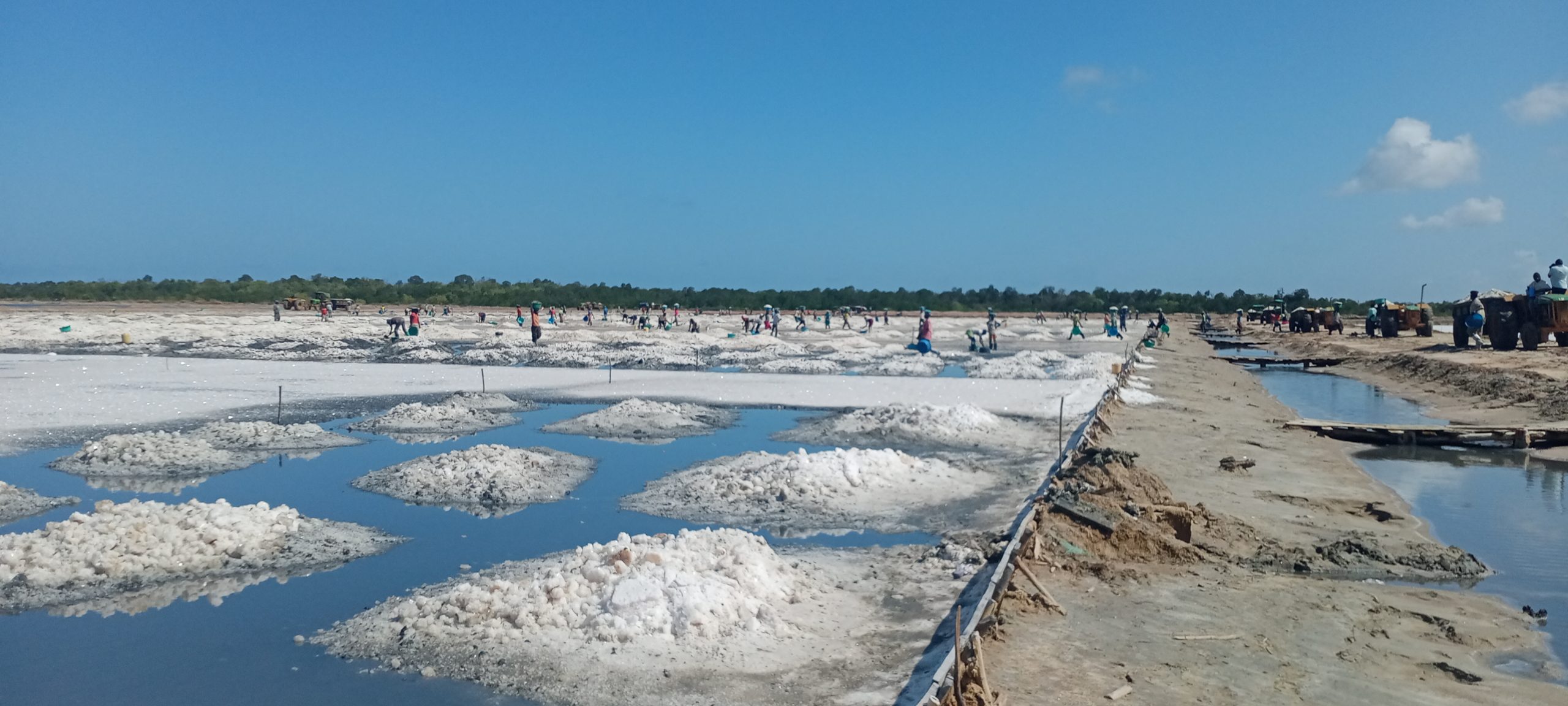Salt-producing firms in Kilifi County have decried high taxation rates by the government they say are hindering their production.
Speaking to reporters at Marereni, Kensalt Manager in charge of Production and Civil Works Maintenance Gilbert Mwinga said the company has been forced to operate at a high-level cost of production because of the exorbitant taxes levied on them by several government agencies.
“Even though salt production remains one of the direct employment opportunities for the local communities here in Magarini, our production has been hampered by the high taxation cost by government agencies. If you factor the high tax rates into our production, the cost becomes high to an extent that we have to increase the cost of our products. If that happens then we directly affect our consumers. The government needs to address the high cost levied on us,” Mr. Mwinga said.
He added that the company, which currently employs 150 workers on permanent jobs and renders causal jobs to between 500 and 600 workers on daily basis, said should the government reduce its taxes on salt producers then it will be able to employ more workforce and create more job opportunities for the communities.
“We have to production seasons, a short season that stretches between September and December and then we have the long season that starts from January to March. In totality we have an estimated production of 120,000 metric tons in every season,” said Mr. Mwinga.
The officer said the company has already identified several new market areas within the African continent and abroad and asked for more government interventions to ease their trade.
“Sometimes and because of climate change, we fail to produce enough salt because of rains. Now when this happens, we are forced to import salt from other countries like Australia and Egypt. The global market price for salt is currently high and a tonne goes for about Sh45,000 we import between 70,000 and 80,000 tonnes in case of such a situation. Again this is where the government must also come in and reduce import duty,” he said.
He said that currently, the company is negotiating with squatters to enable it to acquire more acreage of land to expand its production belt as they seek to bridge the shortfall of product at the market.
“We are currently operating at about 9,000 acres of land but due to increased demand and getting new markets for our products, we are now seeking to increase our acreage by at least 1,500 acres,” he said.
Mr. Mwinga said the effort of the company to expand its services was dealt a blow after a new firm they acquired to boost salt production never materialized because of a court case.
“In our quest to expand our business, we acquired another firm, and bought new equipment to harvest salt but then there was a court case over the same and that has stopped our acquisition program. We hope that the case will be completed in time because our equipment purchased at millions of shillings is going to waste,” he said.
The officer further urged the county government to also come up with policies on how they can partner with local investors on areas of interest to the communities.
“We have done a lot of projects for the communities including giving them water through the drilling of boreholes. We have about 20 acres of land where we want to build a school, starting with a Kindergarten, Primary and Secondary school for the community,” he said.



















